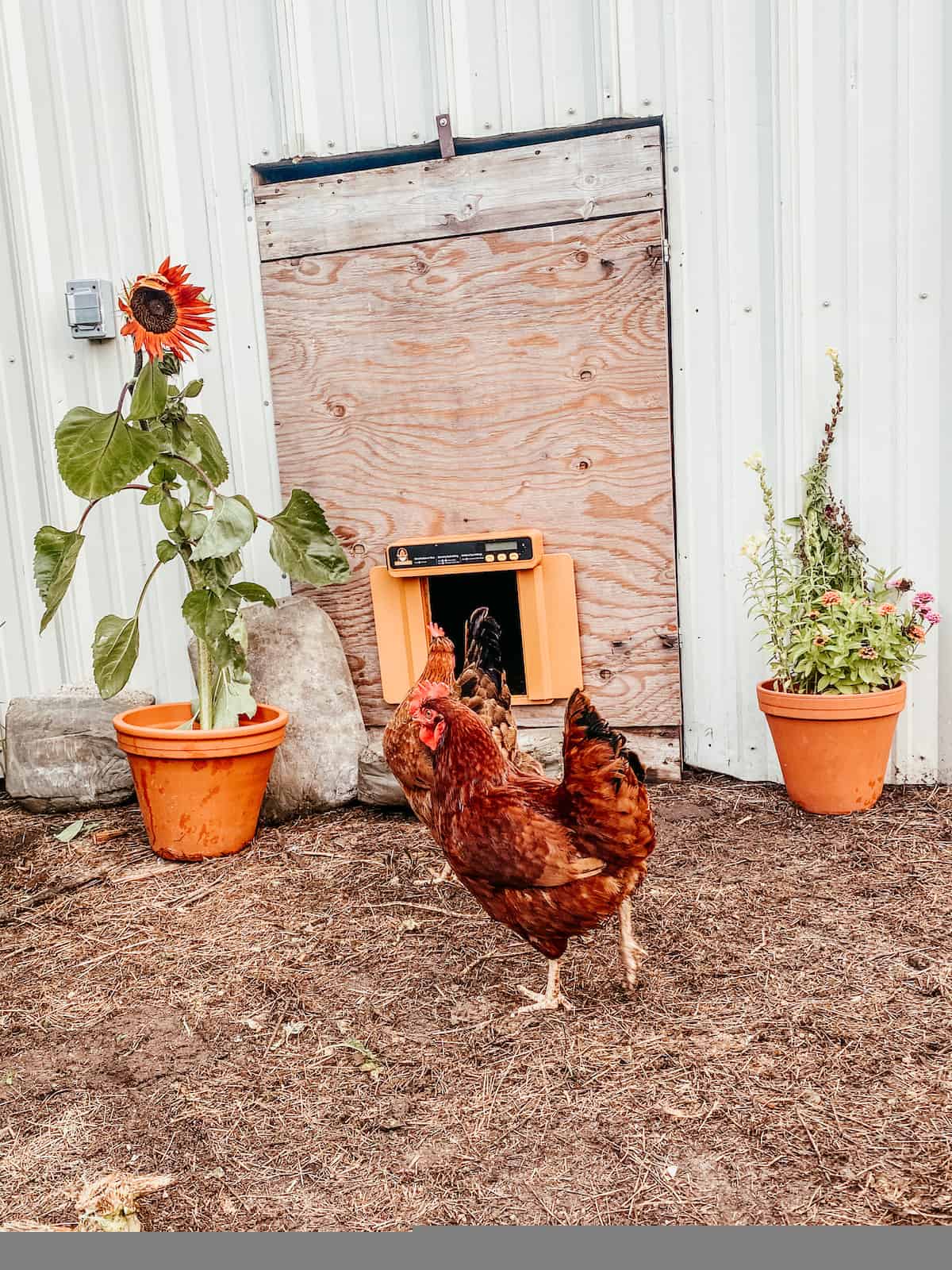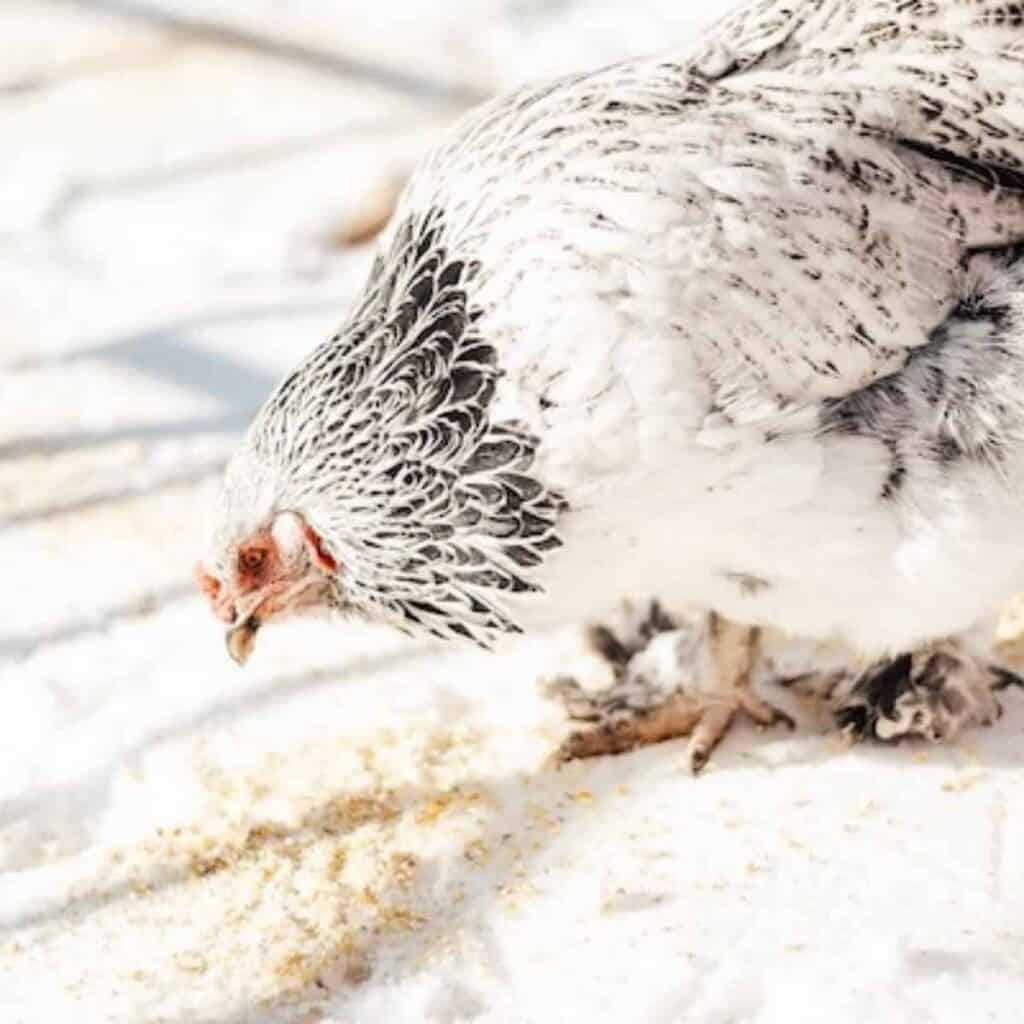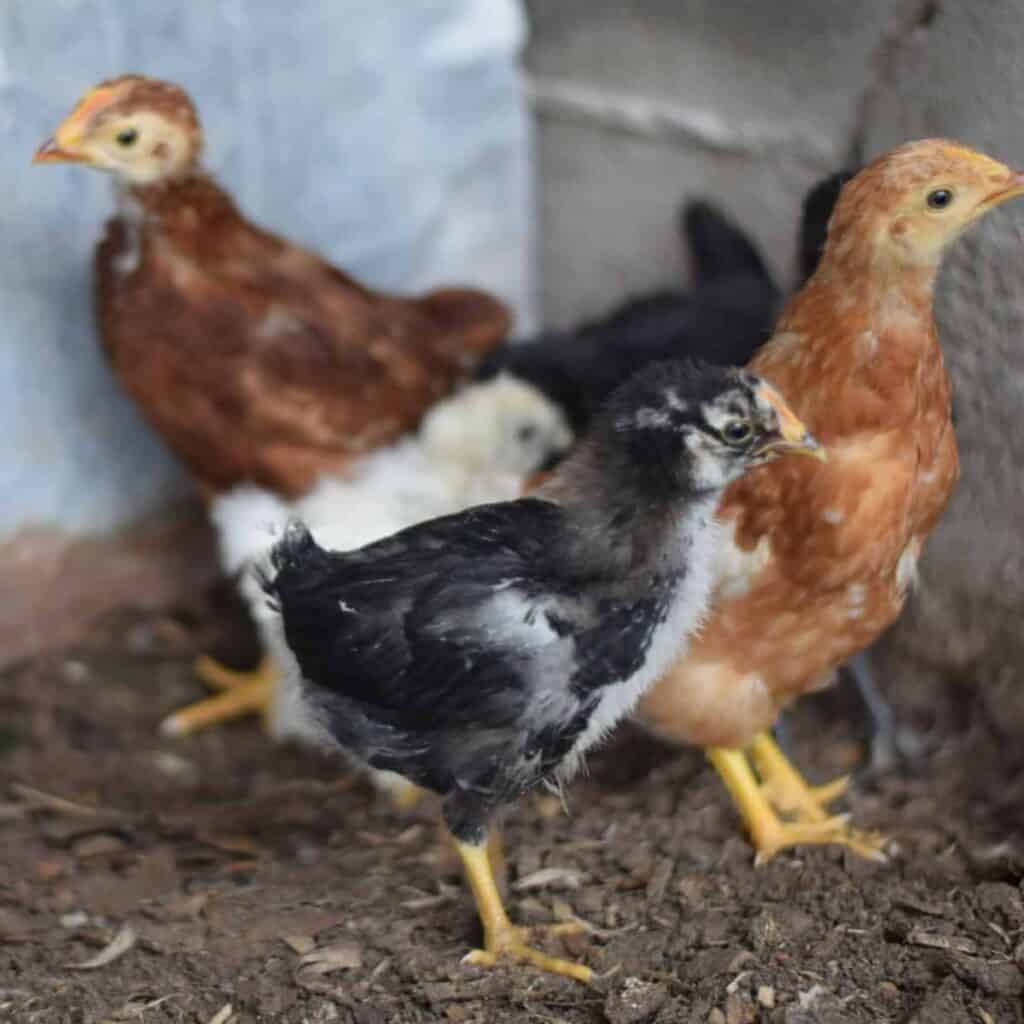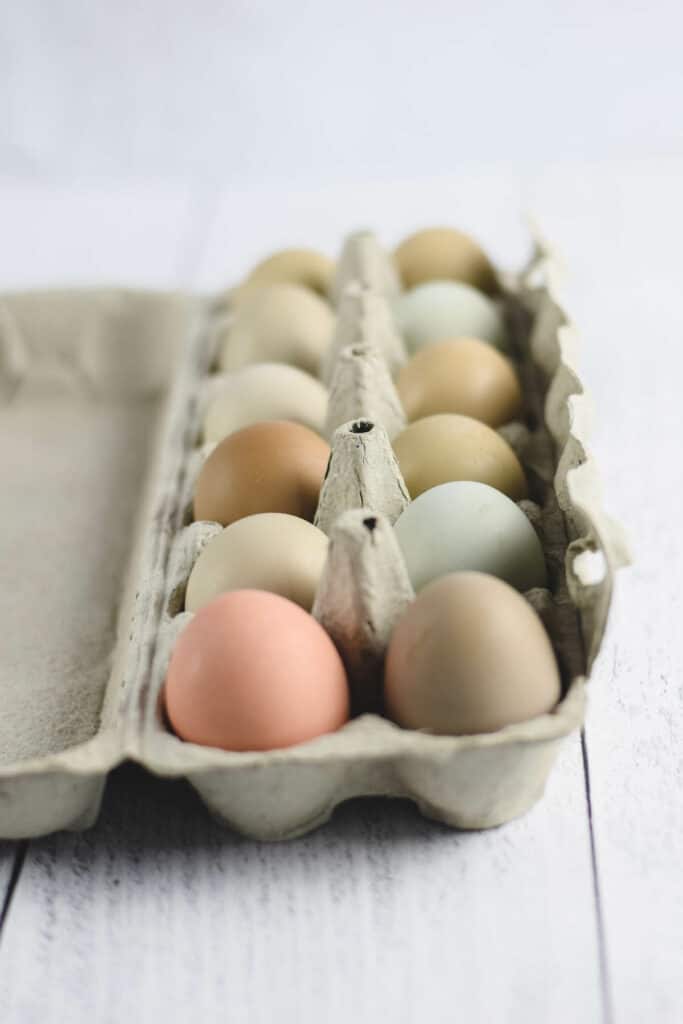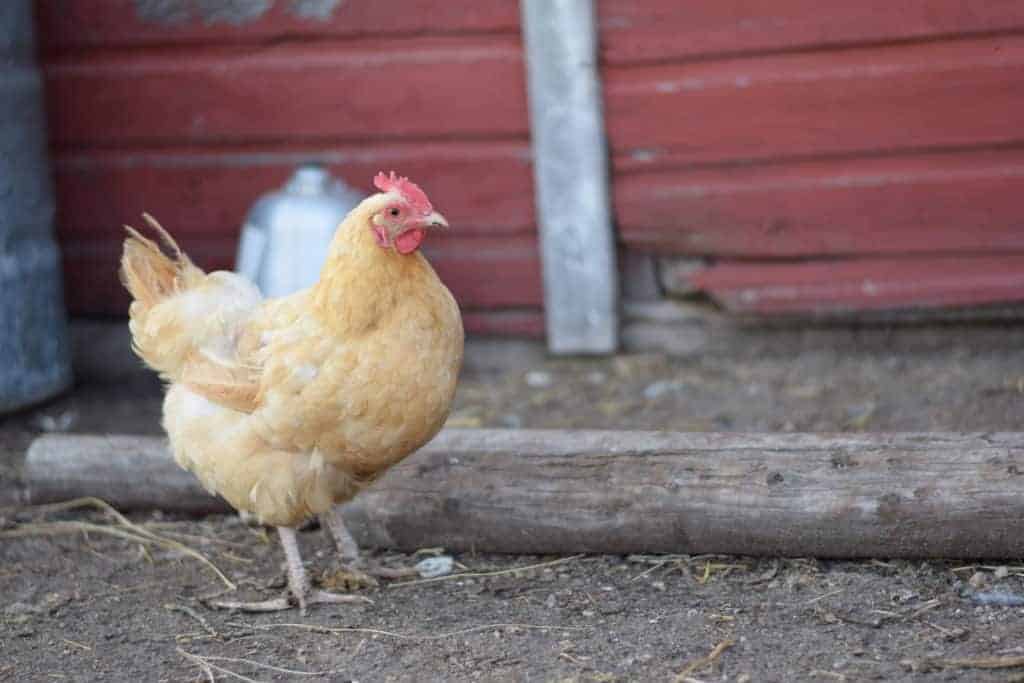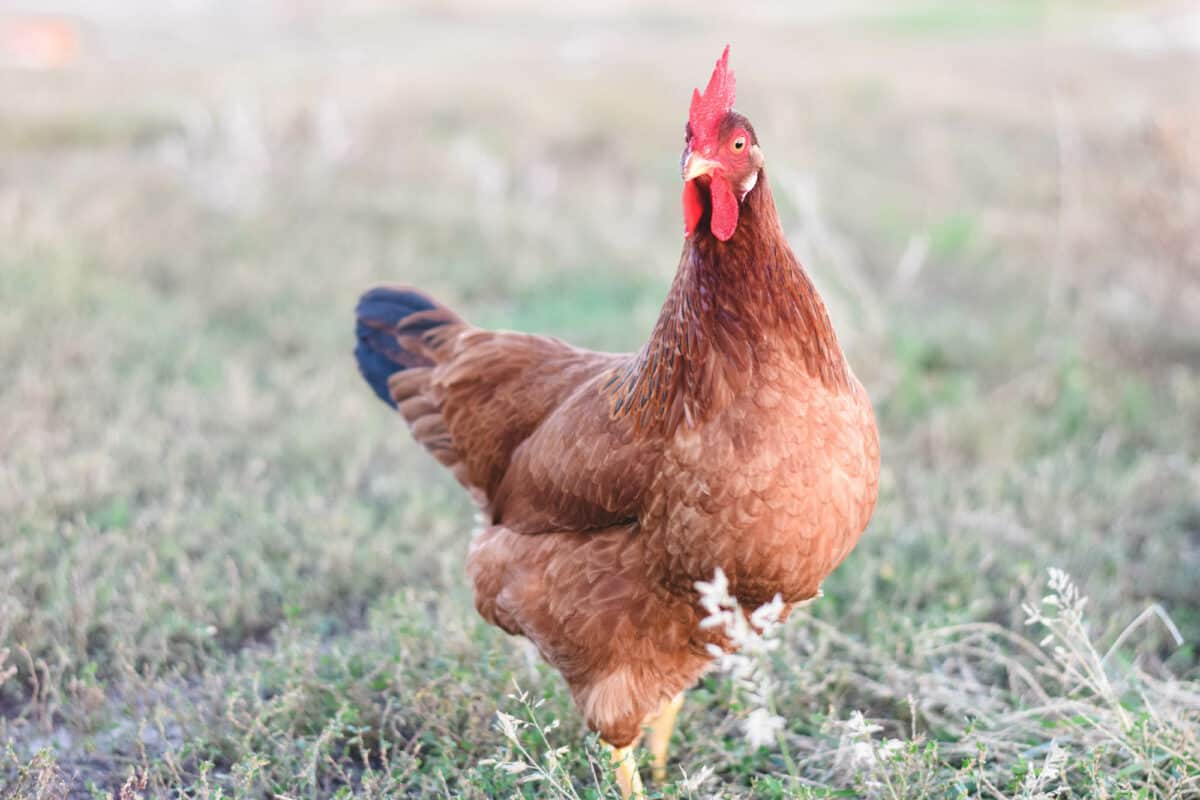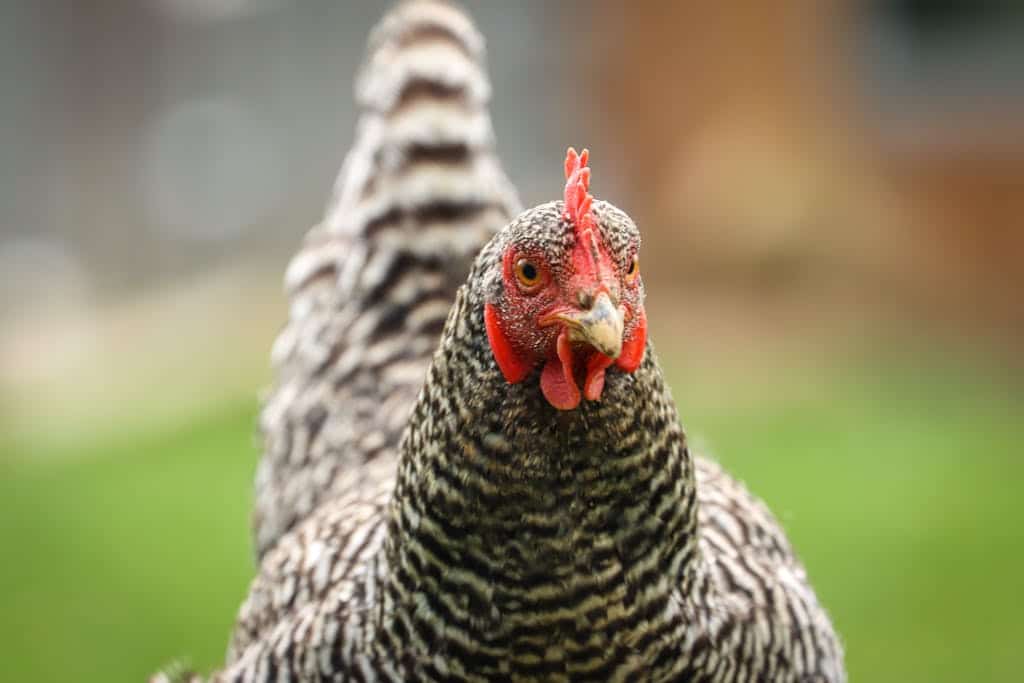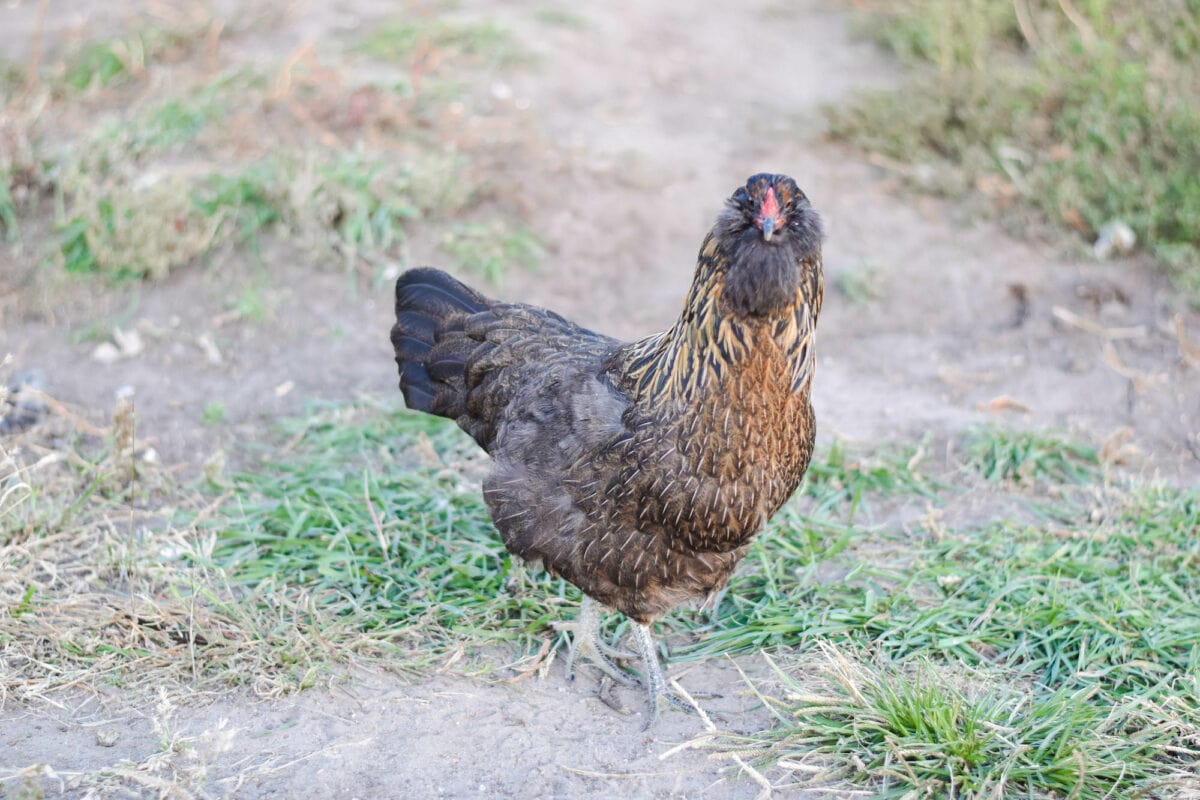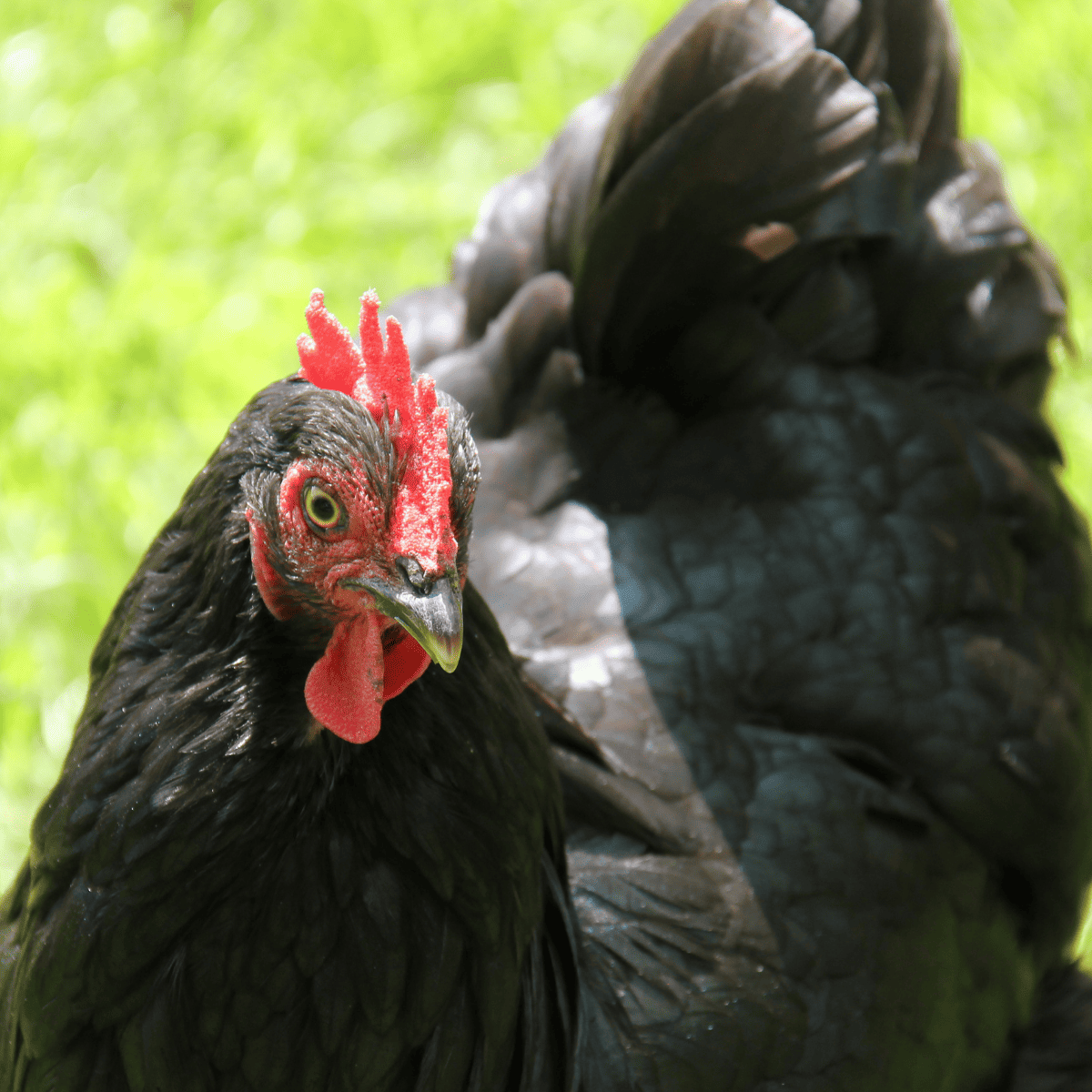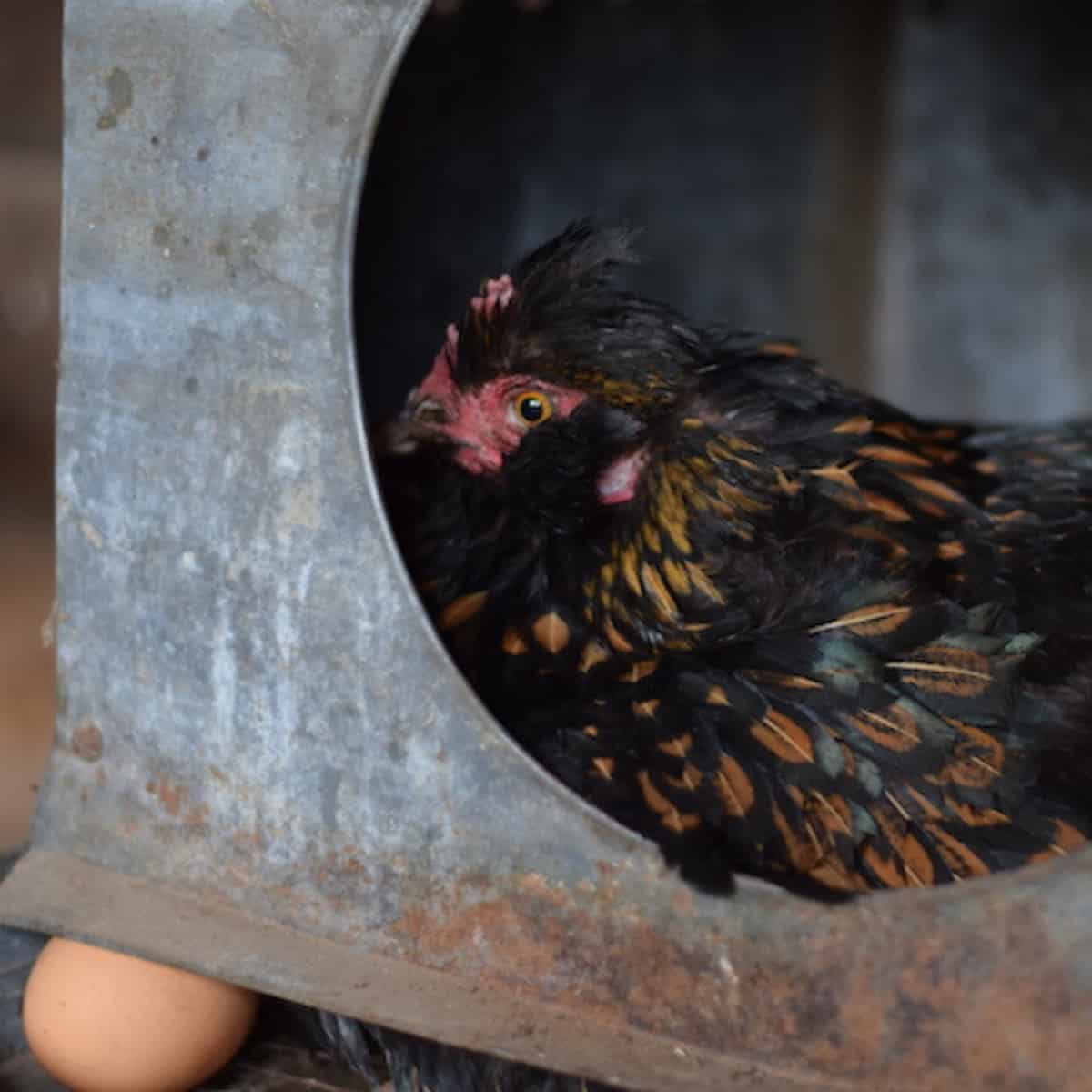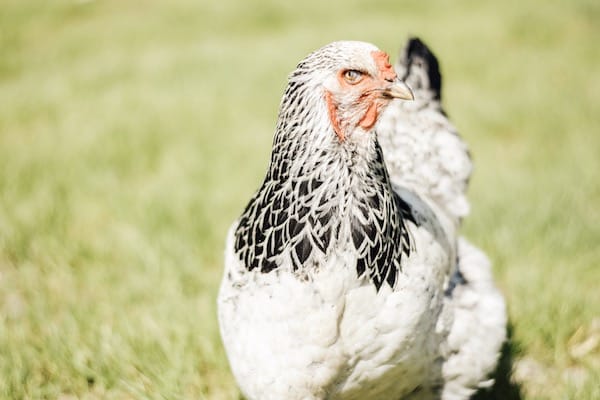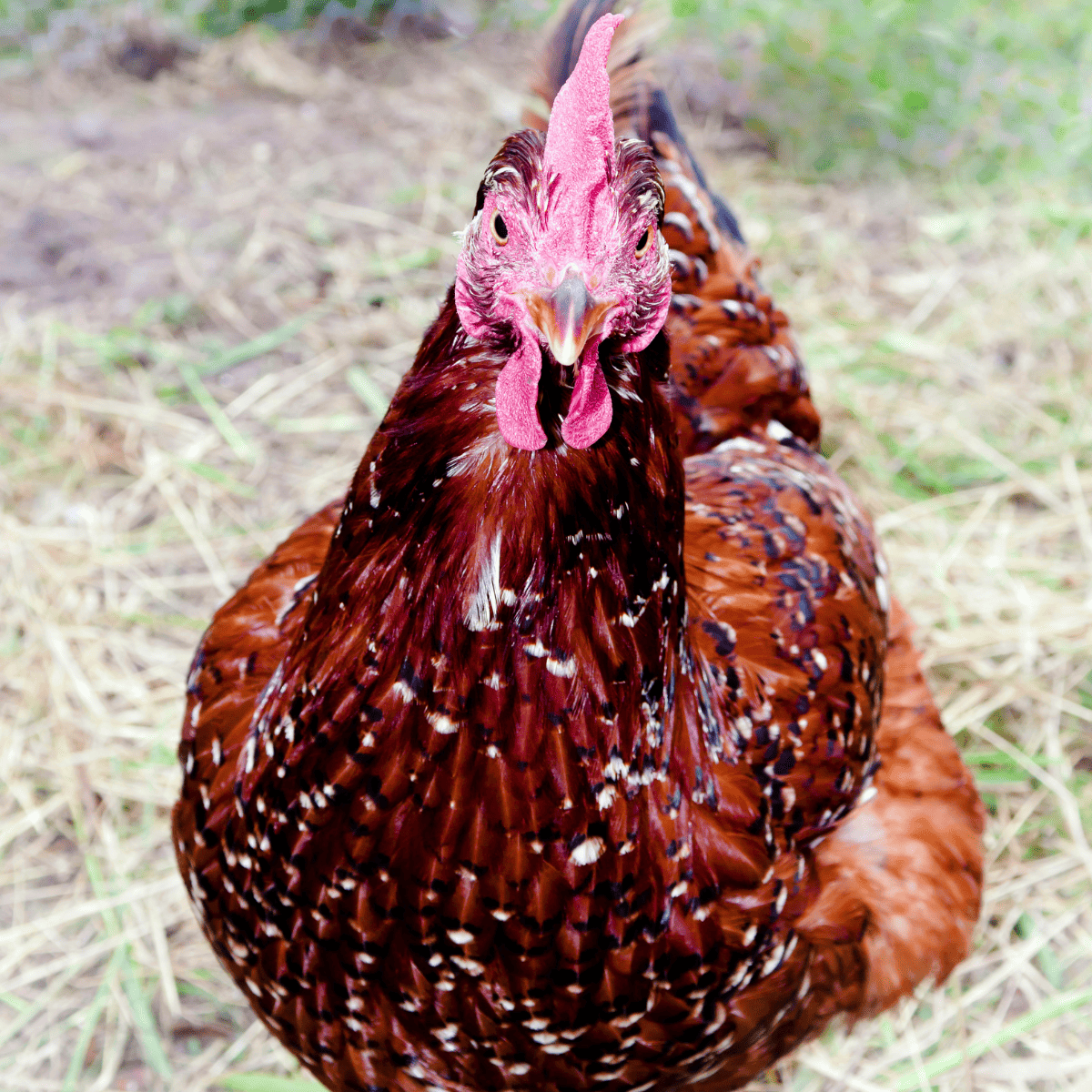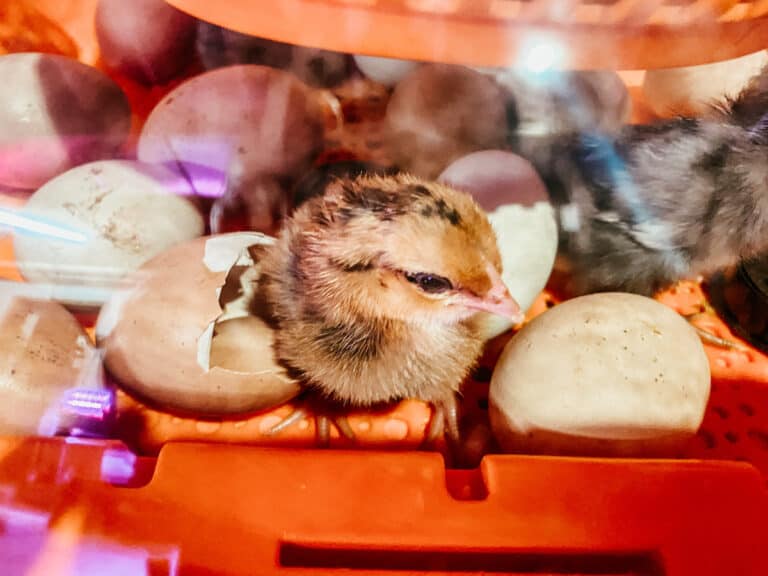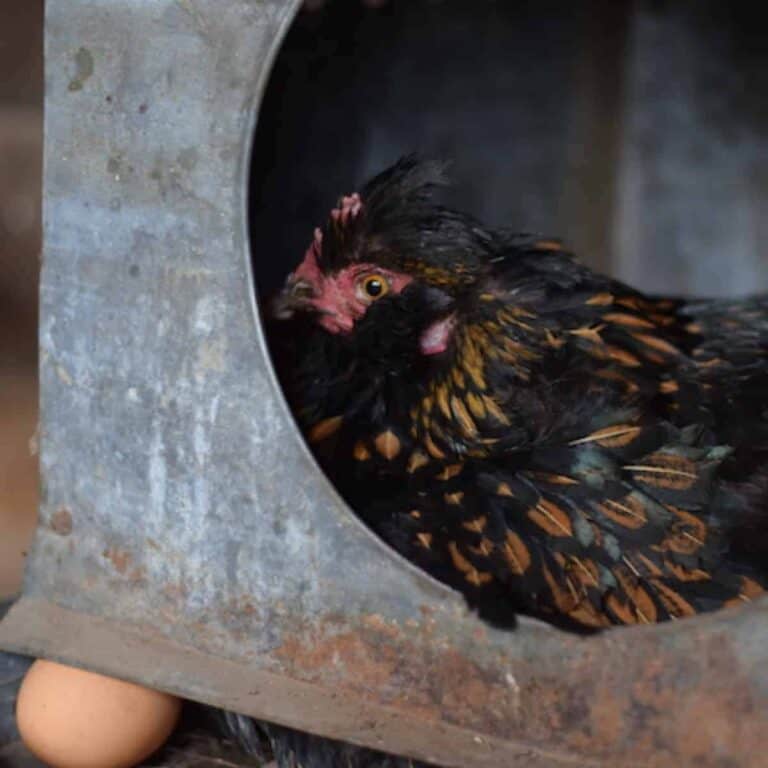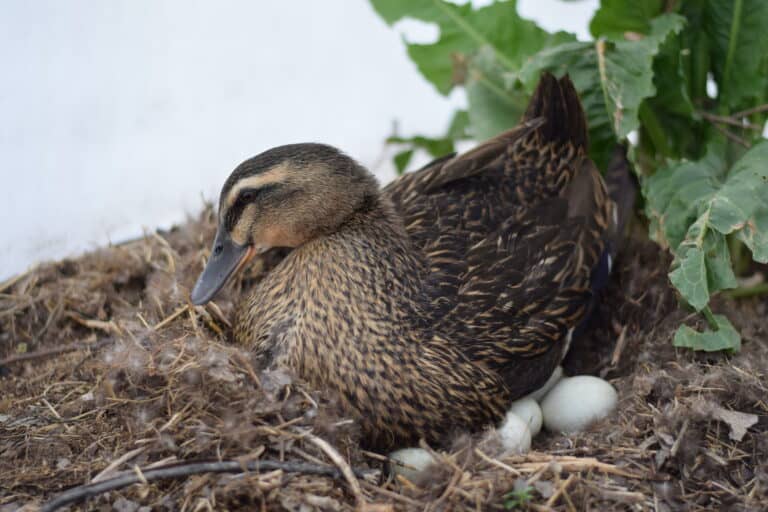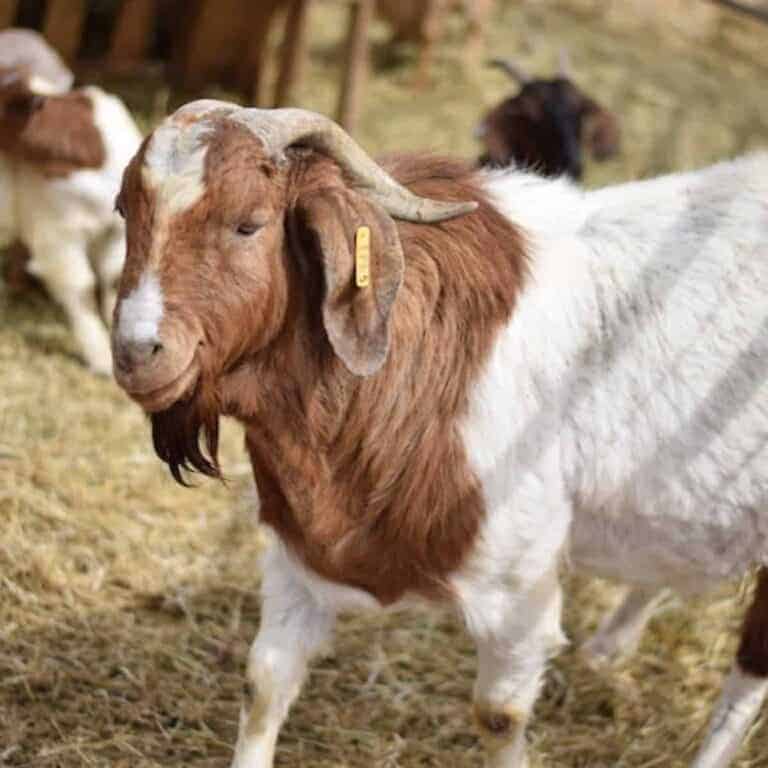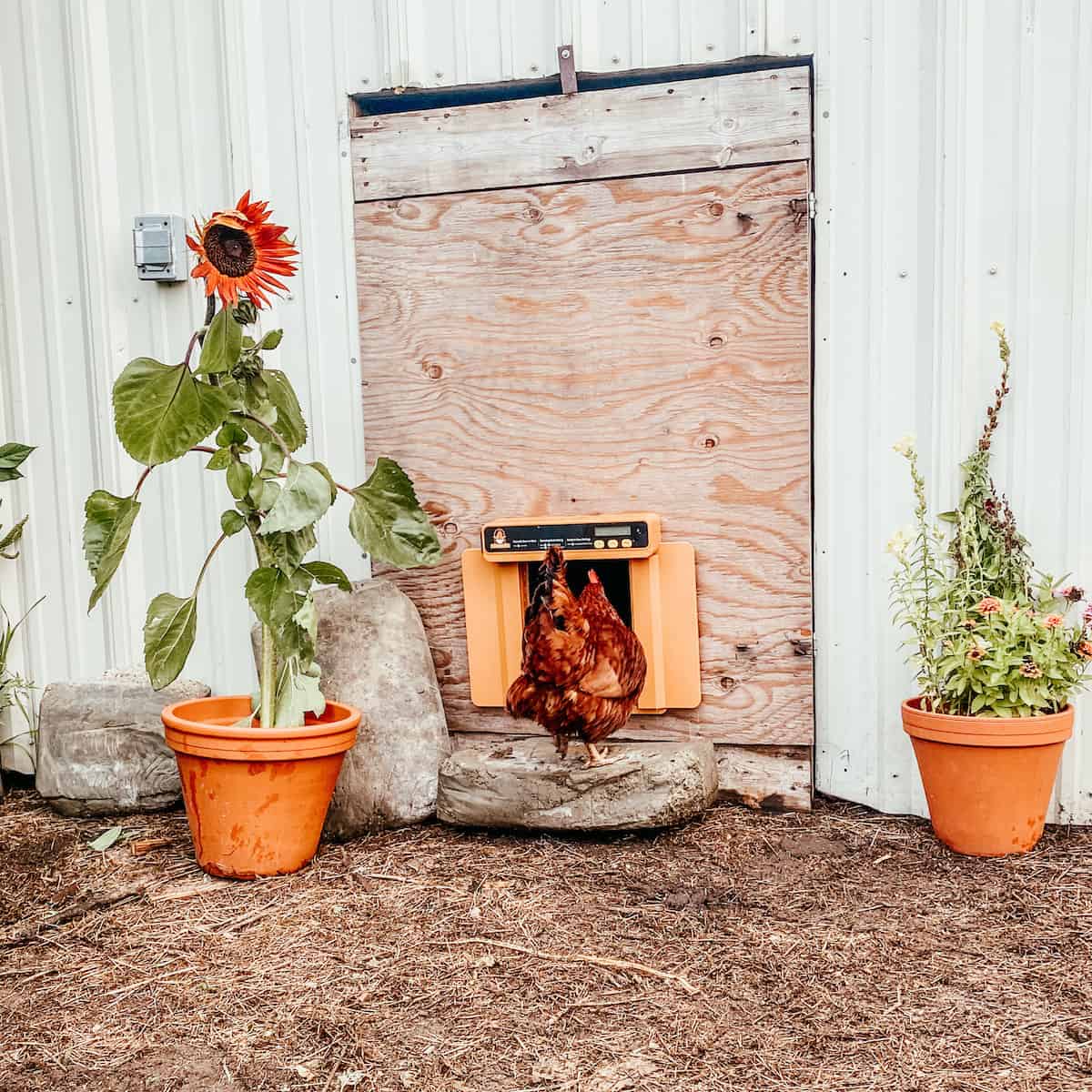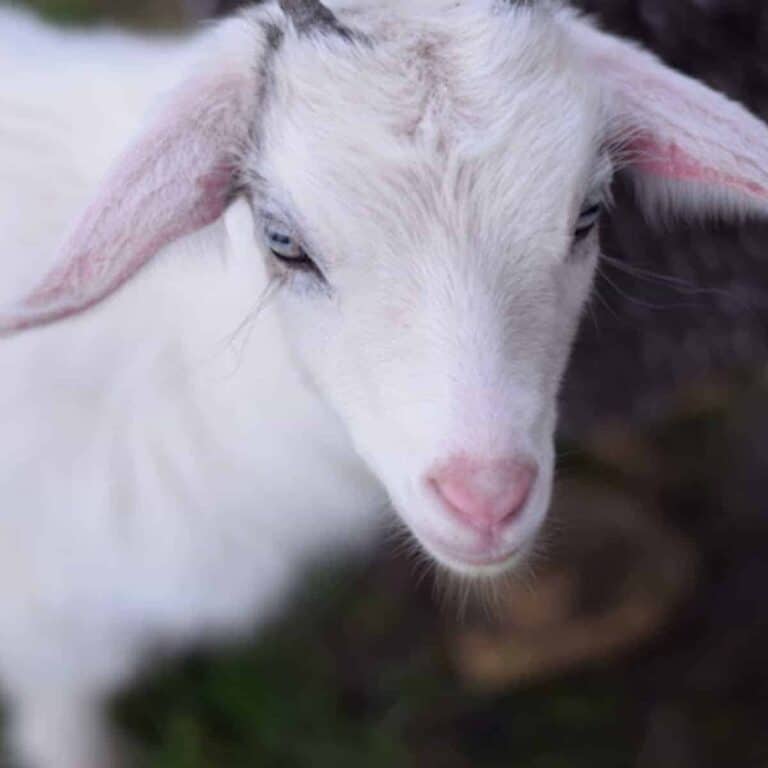Best Backyard Chickens for Beginners (top chicken breeds)
Are you new to raising chickens and looking for the perfect breed to start with? Here are some of the best backyard chickens for beginners, from low-maintenance to friendly and docile.
In this post, I’m sharing some helpful information about these breeds, their temperament, egg-laying abilities, and overall care requirements.
The different breeds that I’m highlighting make a great choice or addition to your backyard flock. Whether you’re a beginner or looking to grow your current flock, you’ll find the right breed for your needs.
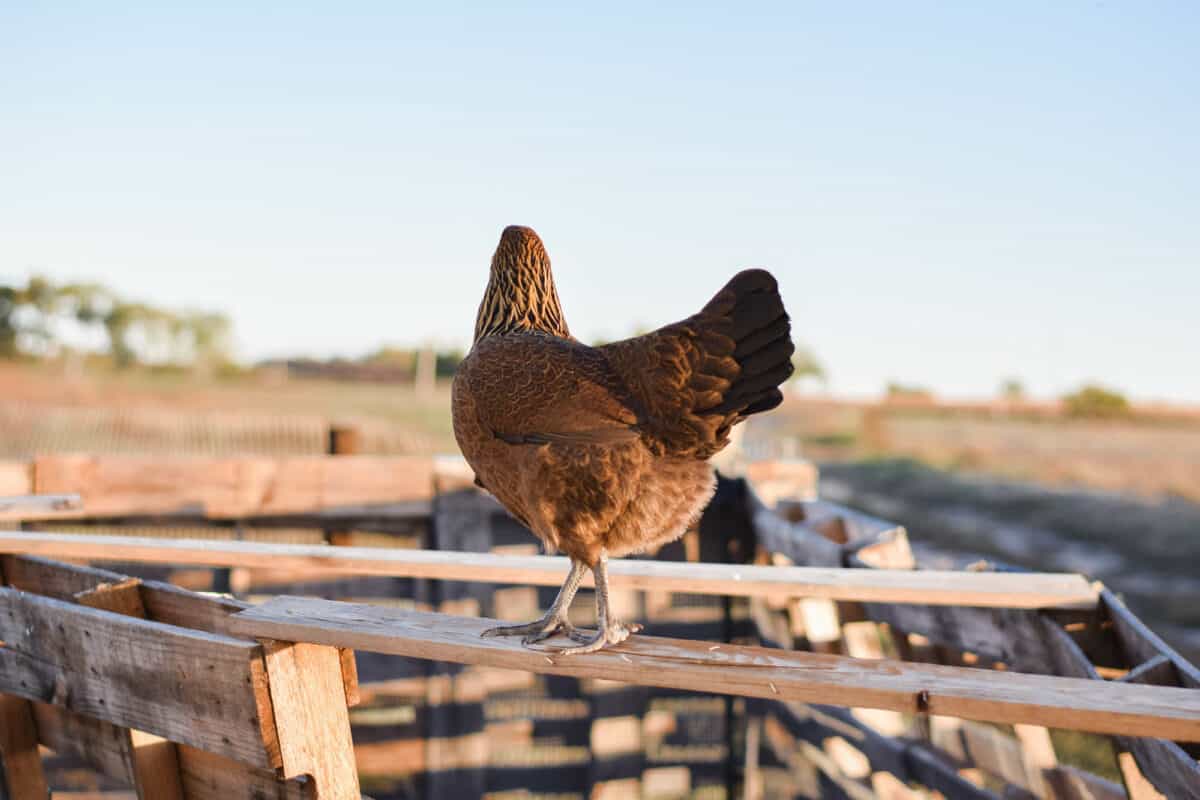
Choosing the best breed of chicken really depends on what you’re looking for with keeping backyard chickens.
We love to keep a huge mixed flock of chickens on our family homestead. The breeds that I’m sharing today are excellent breeds that we personally love and have kept for many years.
I’ve chosen the top breeds that are a hardy bird, adaptable to cold and warm climates, provide you with lots of eggs (I mean, fresh daily is kind of the point, right?) and are also docile birds.
Buff Orpington
This is one of our top favorite breeds on our homestead. They have the sweetest personalities and are super calm and gentle. They are known for being calm, gentle birds that are easy to handle and suitable for families with children, especially young children. And this is one of the big reasons why they’re a favorite for our family.
Their laid-back nature also makes them compatible with other flock members. If you’re adding more chickens to your current flock, read this post for tips on how to introduce new chickens to the current flock.
Buff Orpington chickens are a beloved breed known for their gentle disposition, cold-hardiness, and excellent egg-laying abilities.
Buff Orpingtons are prolific layers of large, brown eggs. While they may not lay as many eggs as some other breeds, they are consistent layers throughout the year, producing around 160 to 200 eggs annually.
Buff Orpington
Temperament: docile, gentle, calm, friendly
Egg-laying ability: prolific, around 160 to 200 annually.
Hardiness: robust and cold-hardy.
Buff Orpingtons are known for their robust and cold-hardy nature, ability to withstand chilly temperatures well. Their dense, fluffy plumage helps insulate them during cold weather, making them suitable for various climates. They also tolerate heat reasonably well, provided they have access to shade and fresh water.
Buff Orpingtons have a distinctive golden buff plumage that gives them a warm, sunny appearance. They have a medium-sized single comb, bright red wattles, and red earlobes. Both roosters and hens have similar feather patterns, with males typically being larger and more brightly colored.
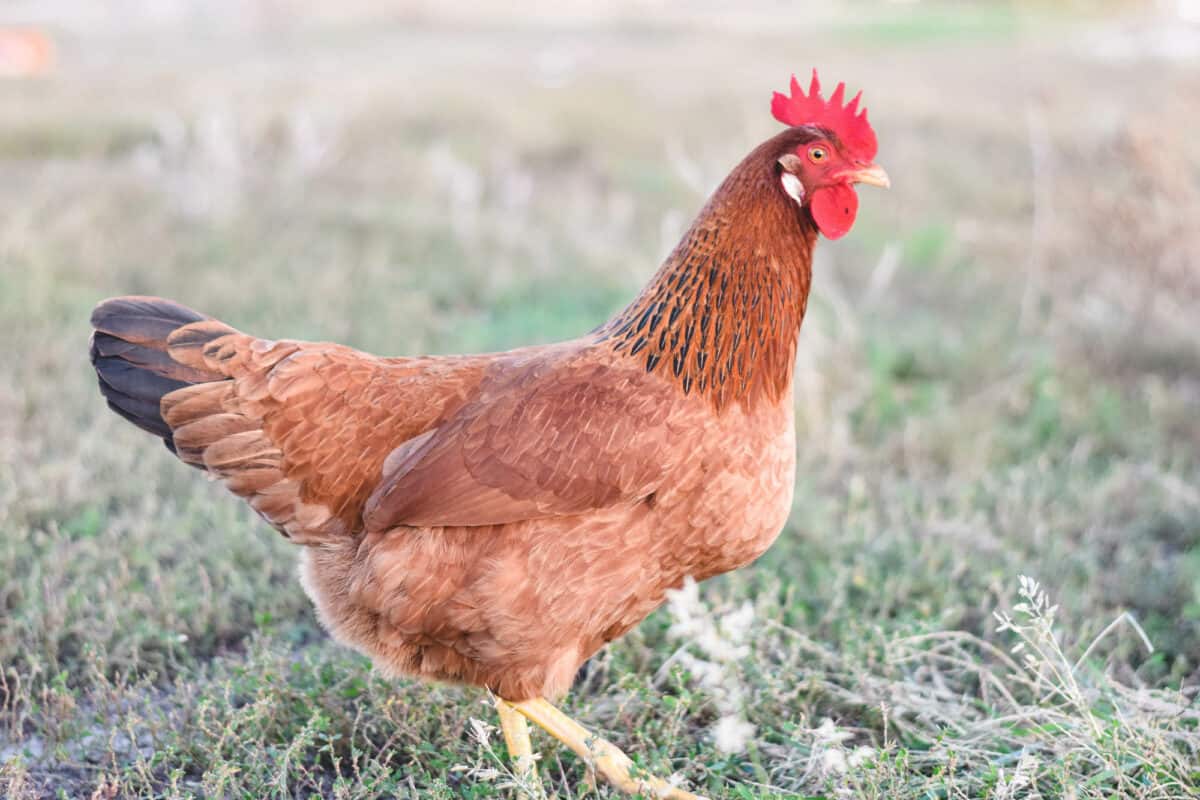
Rhode Island Red
The Rhode Island Red chicken is another favorite breed that we love to raise on the homestead. Their gentleness and adaptability makes them a hardy favorite we consistently have in our flock.
Known for their excellent egg-laying abilities, Rhode Island Reds are a hardy breed that adapts well to various climates. They are friendly and relatively low-maintenance, making them one of the best breeds for beginners.
Rhode Island Reds are good layers of large, brown eggs, making them an excellent choice for egg production. Hens can lay around 200 to 300 eggs per year.
Rhode Island Red
Temperament: calm and friendly disposition.
Egg-laying ability: around 200 to 300 eggs per year.
Hardiness: robust and hardy nature.
Rhode Island Reds are one of best backyard chickens for beginners. They typically have a calm and friendly temperament, although individual birds may vary. We’ve always had great experiences with our Rhode Island Red chickens.
They are also known to be great foragers and can thrive in free-range settings and during the summer months. Many first time chicken owners have a lot of success with this breed.
Rhode Island Reds have a distinctive appearance, with deep red plumage that can vary slightly in shade. They have a medium-sized single comb, wattles, and bright red eyes. Roosters are larger and more brightly colored than hens.
Plymouth Rock (aka Barred Rock)
These chickens are another one of the best backyard chicken breeds. They are docile, cold-hardy, and excellent layers of light brown eggs.
They are also known for their gentle temperament and if you allow your chickens to free range, they are good foragers.
Barred Rocks typically lay consistently throughout the year, with hens producing around 200 to 280 eggs annually. Their steady egg production makes them a favorite choice for backyard chicken enthusiasts and homesteaders.
Plymouth Rocks are known for their hardy nature and ability to adapt well to various climates. They are particularly tolerant of cold weather, although they can also handle heat reasonably well with proper shade and ventilation.
Plymouth Rock (Barred Rock)
Temperament: gentle.
Egg-laying ability: between 200 to 280 eggs annually.
Hardiness: cold-hardy and heat adaptability.
Barred Rocks are renowned for their calm and docile temperament, making them ideal for families and beginners. They are friendly, easy to handle, and generally get along well with other flock members.
The most recognizable feature of Barred Rocks is their striking black and white barred plumage pattern. They have a single comb, red wattles, and bright red eyes. Both roosters and hens have similar feather patterns, with males typically being larger and more brightly colored.
Easter Egger
Looking for colorful eggs? You’ll definitely want to add the Easter Egger to your flock! They are sweet and another favorite on our homestead. I’m partial to a flock of sweet, docile ladies that leave me with a colorful egg basket.
Easter Eggers are not a standardized breed but rather a mixed-breed chicken that possesses a unique trait: the ability to lay eggs with colorful shells.
These eggs can range in color from blue and green to pink and even light brown. The specific egg coloration is determined by the genetics of the bird, particularly if they carry the blue egg-laying gene inherited from breeds like the Araucana or Ameraucana.
Want to save this?
→Related: 9 chicken breeds for colorful eggs
Easter Egger
Temperament: friendly and docile.
Egg-laying ability: around 150 to 200 eggs per year.
Hardiness: both heat and cold hardy.
They are also well-suited for small-scale and backyard poultry keeping due to their manageable size and friendly nature.
Overall, Easter Egger chickens are prized for their unique egg coloration, friendly temperament, and versatility, making them a popular choice among poultry enthusiasts who want to add some color to their egg basket.
Australorp
Australorp chickens are another popular breed known for their exceptional egg-laying abilities, calm temperament, and suitability for various climates.
They have a calm and docile temperament, making them excellent choices for families and beginner poultry keepers. They are friendly, easy to handle, and generally get along well with other flock members. They’re also great for children and around other pets.
Australorps are renowned for their prolific egg-laying capabilities. They are one of the most productive egg-laying breeds, with hens laying consistently throughout the year.
On average, Australorps lay around 250 to 300 large, brown eggs annually, making them highly valued for home egg production and commercial egg farms alike.
Buff Orpington
Temperament: calm and docile.
Egg-laying ability: around 250 to 300 per year.
Hardiness: well-suited to cold and warm climates.
Australorps are hardy and adaptable chickens that can tolerate a wide range of climates. They are particularly well-suited to cold climates, but they also handle heat reasonably well with proper shade and ventilation. Their medium-sized bodies and dense feathering provide insulation against cold temperature
Wyandotte
Wyandottes come in several color varieties and are known for their cold hardiness and ability to lay eggs consistently throughout the year. They have a calm temperament and are good foragers.
The Wyandotte is another prized addition to our family farm. They are calm and docile and super sweet with our children. So I would recommend them as one of the best chicken breeds for beginners.
Wyandottes are moderate to good layers of large brown eggs. While they may not be as prolific as some other breeds, they typically lay consistently throughout the year, with hens producing around 200 to 250 eggs annually. Their eggs are of good size and quality, making them valuable for home egg production.
Wyandotte
Temperament: calm temperament.
Egg-laying ability: around 200 to 250 eggs annually.
Hardiness: Absolutely.
Wyandottes are known for their cold hardiness, making them well-suited to colder climates. They have dense plumage that helps insulate them against chilly temperatures. However, they also handle heat reasonably well, provided they have access to shade and fresh water.
Wyandottes are known for their striking appearance. They have a compact and rounded body shape with a rose comb and bright red wattles.
The most common color variety is the Silver Laced Wyandotte, featuring black lacing on silver feathers. Other color varieties include Golden Laced, Blue Laced, Black, Buff, and White.
Brahma
Brahma chickens are a distinctive breed known for their large size, gentle temperament, and striking appearance.
These chickens are one of the largest chicken breeds, with roosters often weighing between 10 to 12 pounds and hens weighing between 8 to 10 pounds. Their size and heavy build make them an impressive addition to any flock.
Brahmas have a distinctive appearance characterized by their large size, broad bodies, and feathered feet. They have a single comb and wattles, with feathers extending down their legs and toes.
Brahmas come in three primary color varieties: Light, Dark, and Buff. Light Brahmas have white plumage with black markings, Dark Brahmas have black plumage with white markings, and Buff Brahmas have golden buff plumage.
Brahma
Temperament: calm and docile temperament.
Egg-laying ability: around 150 to 200 eggs per year.
Hardiness: both cold and heat tolerant.
Brahmas are known for their calm and docile temperament, making them excellent choices for families and beginner poultry keepers. They are gentle, friendly birds that are easy to handle and get along well with other flock members.
While they are primarily valued for their large size and gentle temperament, their meat is also of good quality, making them a practical choice for small-scale homesteads or backyard flocks. If you’re looking for a large bird or a dual-purpose breed, choose this one!
Sussex
Sussex chickens are a versatile and popular breed known for their excellent egg production, attractive appearance, and friendly temperament.
These chickens have a friendly and docile temperament, making them excellent choices for families and beginner poultry keepers.
Sussex chickens are good layers of large, brown eggs. While they may not lay as many eggs as some other highly prolific breeds, they are consistent layers throughout the year, typically producing around 200 to 250 eggs annually.
Sussex
Temperament: docile
Egg-laying ability: 200 to 250 eggs annually.
Hardiness: both cold and hot tolerable.
Sussex chickens are known for their hardiness and adaptability to various climates. They can tolerate both cold and hot weather well, making them suitable for a wide range of environments. Their medium-sized bodies and dense feathering provide insulation against the cold.
The Sussex chickens come in several color varieties, including Light, Speckled, and Red. The Light Sussex is the most common variety, featuring white plumage with black markings on the neck and tail.
Speckled Sussex have a stunning pattern of black and brown speckles on a reddish-brown base, while Red Sussex have rich, chestnut-red plumage. They typically have single combs and bright red wattles.
More chicken keeping
Here’s a few of our favorite chicken keeping posts that we think you’ll love too!
- Chickcozy automatic door review
- Raising chickens in the winter
- Getting started with baby chicks
- Do you need to refrigerate farm fresh eggs?
